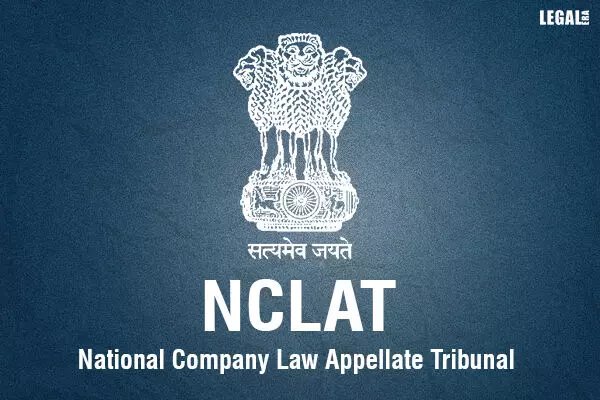- Home
- News
- Articles+
- Aerospace
- Artificial Intelligence
- Agriculture
- Alternate Dispute Resolution
- Arbitration & Mediation
- Banking and Finance
- Bankruptcy
- Book Review
- Bribery & Corruption
- Commercial Litigation
- Competition Law
- Conference Reports
- Consumer Products
- Contract
- Corporate Governance
- Corporate Law
- Covid-19
- Cryptocurrency
- Cybersecurity
- Data Protection
- Defence
- Digital Economy
- E-commerce
- Employment Law
- Energy and Natural Resources
- Entertainment and Sports Law
- Environmental Law
- Environmental, Social, and Governance
- Foreign Direct Investment
- Food and Beverage
- Gaming
- Health Care
- IBC Diaries
- In Focus
- Inclusion & Diversity
- Insurance Law
- Intellectual Property
- International Law
- IP & Tech Era
- Know the Law
- Labour Laws
- Law & Policy and Regulation
- Litigation
- Litigation Funding
- Manufacturing
- Mergers & Acquisitions
- NFTs
- Privacy
- Private Equity
- Project Finance
- Real Estate
- Risk and Compliance
- Student Corner
- Take On Board
- Tax
- Technology Media and Telecom
- Tributes
- Viewpoint
- Zoom In
- Law Firms
- In-House
- Rankings
- E-Magazine
- Legal Era TV
- Events
- Middle East
- Africa
- News
- Articles
- Aerospace
- Artificial Intelligence
- Agriculture
- Alternate Dispute Resolution
- Arbitration & Mediation
- Banking and Finance
- Bankruptcy
- Book Review
- Bribery & Corruption
- Commercial Litigation
- Competition Law
- Conference Reports
- Consumer Products
- Contract
- Corporate Governance
- Corporate Law
- Covid-19
- Cryptocurrency
- Cybersecurity
- Data Protection
- Defence
- Digital Economy
- E-commerce
- Employment Law
- Energy and Natural Resources
- Entertainment and Sports Law
- Environmental Law
- Environmental, Social, and Governance
- Foreign Direct Investment
- Food and Beverage
- Gaming
- Health Care
- IBC Diaries
- In Focus
- Inclusion & Diversity
- Insurance Law
- Intellectual Property
- International Law
- IP & Tech Era
- Know the Law
- Labour Laws
- Law & Policy and Regulation
- Litigation
- Litigation Funding
- Manufacturing
- Mergers & Acquisitions
- NFTs
- Privacy
- Private Equity
- Project Finance
- Real Estate
- Risk and Compliance
- Student Corner
- Take On Board
- Tax
- Technology Media and Telecom
- Tributes
- Viewpoint
- Zoom In
- Law Firms
- In-House
- Rankings
- E-Magazine
- Legal Era TV
- Events
- Middle East
- Africa
NCLAT Delhi Rules: Resolution Applicant Not On Initial Resolution Applicants List Cannot Be Substituted Later

NCLAT Delhi Rules: Resolution Applicant Not On Initial Resolution Applicants List Cannot Be Substituted Later
The National Company Law Appellate Tribunal (NCLAT) Delhi bench, comprising Chairperson Justice Ashok Bhushan and Technical Member Mr. Barun Mitra, has ruled that a resolution applicant who did not participate in the Corporate Insolvency Resolution Process (CIRP) from the beginning and was not included in the list of prospective resolution applicants cannot be substituted to implement the resolution plan for the corporate debtor.
The CIRP of the corporate debtor began, and the resolution professional invited applicants to submit their resolution plans. Initially, only one applicant submitted a plan, while another requested an extension. The NCLT Ahmedabad directed the Committee of Creditors (CoC) to consider a plan from JSPL. Subsequently, the CoC allowed other applicants to amend and resubmit their plans.
The CoC approved the resolution plan from Invent Assets Securitization & Reconstruction Private Limited (Invent Assets) with 72.97% votes. However, the Reserve Bank of India’s (RBI) circular restricted Invent Assets from engaging in activities beyond asset reconstruction without prior approval, rendering it ineligible as a resolution applicant.
Invent Assets then sought permission to substitute its name with 'Westend Investment and Finance Consultancy' (Westend Investment). The NCLT allowed this substitution, and the CoC approved the modified plan with Westend Investment as the new resolution applicant. The Resolution Professional filed an affidavit for the modified plan, which was subsequently approved by the NCLT.
Swan Energy Ltd. (Swan Energy), another resolution applicant, challenged the substitution before the NCLAT, Delhi. Swan Energy argued that substituting Westend Investment was contrary to the Insolvency and Bankruptcy Code (IBC) and CIRP Regulations 2016. It contended that a new Form-G should have been issued for fresh resolution applications rather than substituting a non-participant.
The CoC countered that Westend Investment was a sponsor of Invent Assets and that the substitution was permissible. They also argued that Swan Energy, as an unsuccessful applicant, lacked the standing to challenge the CoC's decision.
The NCLAT upheld Swan Energy’s appeal, ruling that Swan Energy was indeed an aggrieved party under Sections 61(1) and 61(3) of the IBC. The Tribunal noted that Swan Energy had previously challenged the resolution plan but withdrawn its application, thereby limiting its ability to question the approved plan.
The NCLAT found no provision in the Request for Resolution Plan (RFRP) allowing the substitution of resolution applicants post-approval. Regulations 39(1)(B) of the CIRP Regulations stipulate that only those on the final list of prospective resolution applicants may have their plans considered. Westend Investment had not submitted a plan and was not on the list, making the substitution improper.
Citing the case of SREI Multiple Asset Investment Trust Vision Fund v. Deccan Chronicle Marketeers and Ors., the NCLAT ruled that the CoC does not have the authority to modify an approved resolution plan, except in cases of non-compliance with Section 30(2) of the IBC.
Consequently, the NCLAT set aside the NCLT’s order approving the amended resolution plan and directed the Resolution Professional and CoC to issue a new Form-G, inviting resolution applicants and completing the process within 90 days.



